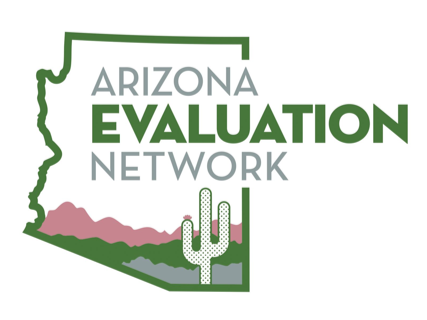We are the Arizona Evaluation Network’s President Jenny McCullough Cosgrove, President-Elect Scott Swagerty, and Communications Chair Deven Wisner, and we are excited to kick of the 2019 Arizona Evaluation Network week of AEA365. Our upcoming Annual Conference is centered around re-focusing on #Eval fundamentals of practice. Over this week we will revisit core data visualization concepts, reflect on how we think about data, refresh our collaboration skills for working with communities, and much much more!
Cool Trick: We believe reflective practice is an important first step in revisiting the fundamentals, so we encourage you to explore this as a launching point to your own professional development. Reflecting on where we are in our evaluation practice can help us uncover opportunities to further develop our skills. It can be helpful to reflect with the guidance of Mezirow’s Seven Different Levels of Reflection:
- Reflectivity: awareness of specific perception, meaning, behaviour
- Affective reflectivity: awareness of how the individual feels about what is being perceived, thought or acted upon
- Discriminant reflectivity: Assessing the efficacy of perception, etc.
- Judgmental reflectivity: Making and becoming aware of the value of judgements made
- Conceptual reflectivity: assessing the extent to which the concepts employed are adequate for the judgement
- Psychic reflectivity: recognition of the habit of making percipient judgements on the basis of limited information
- Theoretical reflectivity; awareness of why one set of perspectives is more or less adequate to explain personal experience.
Rad Resources: Along with continuous reflection, reminding ourselves of the fundamental purpose and value of program evaluation can help to guide our actions to have maximum impact. Evaluations can be expensive, time consuming, and invasive, but they don’t have to be. And the information that comes from an effective evaluation can benefit our clients and communities for years to come. Take this example from the Centers for Disease Control and Prevention–a step-by-step self-study guide reminding evaluators to engage stakeholders, focus on the evaluation design, and gather credible evidence to justify conclusions. Hopefully these skills are second nature for experienced evaluators, but taking the time and mental effort to focus on them strengthens us as professionals as well as the work we produce.
The American Evaluation Association is celebrating Arizona Evaluation Network (AZENet) Affiliate Week. The contributions all this week to aea365 come from our AZENet members. Do you have questions, concerns, kudos, or content to extend this aea365 contribution? Please add them in the comments section for this post on the aea365 webpage so that we may enrich our community of practice. Would you like to submit an aea365 Tip? Please send a note of interest to aea365@eval.org. aea365 is sponsored by the American Evaluation Association and provides a Tip-a-Day by and for evaluators.
